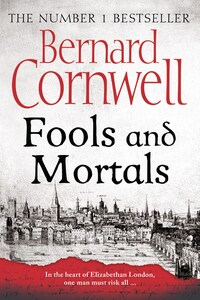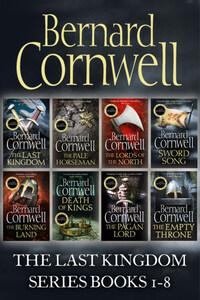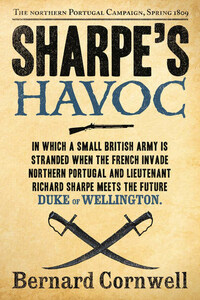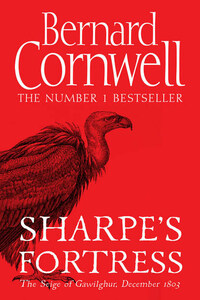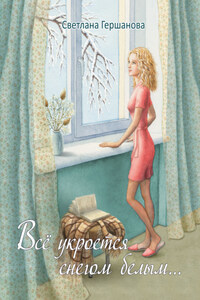HarperCollinsPublishers
1 London Bridge Street
London SE1 9GF
www.harpercollins.co.uk
First published by HarperCollinsPublishers 2017
Copyright © Bernard Cornwell 2017
Cover design by Holly Macdonald © HarperCollinsPublishers Ltd 2018. Cover images © World History Archive/Alamy Stock Photo (London panorama); Ian Dagnall/Alamy Stock Photo (Shakespeare’s last will and testament).
Bernard Cornwell asserts the moral right to be identified as the author of this work
A catalogue record of this book is available from the British Library
Part One illustration: 17th century view of London © Private Collection/Bridgeman Images
Part Two illustration: Elizabethan theatre scene © Lebrecht Music and Arts Photo Library/Alamy
Part Three illustration: The Globe Theatre from ‘Old and New London’ by Edward Walford © Montagu Images/Alamy
Part Four illustration: Scene from an Elizabethan playhouse © Chronicle/Alamy
This novel is entirely a work of fiction. The names, characters and incidents portrayed in it, while at times based on historical figures, are the work of the author’s imagination.
All rights reserved under International and Pan-American Copyright Conventions. By payment of the required fees, you have been granted the non-exclusive, non-transferable right to access and read the text of this e-book on-screen. No part of this text may be reproduced, transmitted, down-loaded, decompiled, reverse engineered, or stored in or introduced into any information storage and retrieval system, in any form or by any means, whether electronic or mechanical, now known or hereinafter invented, without the express written permission of HarperCollins e-books
Source ISBN: 9780007504145
Ebook Edition © APRIL 2018 ISBN: 9780007504138
Version: 2018-10-17
Fools and Mortals
is dedicated, with affection,
to all the actors, actresses, directors,
musicians and technicians of the
Monomoy Theatre
PUCK: Lord, what fools these mortals be!
A Midsummer Night’s Dream
Act III, Scene 2, line 115
HIPPOLYTA: This is the silliest stuff that ever I heard.
THESEUS: The best in this kind are but shadows; and the worst are no worse, if imagination amend them.
HIPPOLYTA: It must be your imagination then, and not theirs.
THESEUS: If we imagine no worse of them than they of themselves, they may pass for excellent men.
A Midsummer Night’s Dream
Act V, Scene 1, lines 207ff
I DIED JUST after the clock in the passageway struck nine.
There are those who claim that Her Majesty, Elizabeth, by the grace of God, Queen of England, France, and of Ireland, will not allow clocks to strike the hour in her palaces. Time is not allowed to pass for her. She has defeated time. But that clock struck. I remember it.
I counted the bells. Nine. Then my killer struck.
And I died.
My brother says there is only one way to tell a story. ‘Begin,’ he says in his irritatingly pedantic manner, ‘at the beginning. Where else?’
I see I have started a little too late, so we shall go back to five minutes before nine, and begin again.
Imagine, if you will, a woman. She is no longer young, nor is she old. She is tall, and, I am constantly told, strikingly handsome. On the night of her death she is wearing a gown made from the darkest blue velvet, embroidered with a mass of silver stars, each star studded with a pearl. Panels of watered silk, pale lavender in colour, billow through the open-fronted skirt as she moves. The same expensive silk lines her sleeves, the lavender showing through slits cut into the star-studded velvet. The skirt brushes the floor, hiding her delicate slippers, which are cut from an antique tapestry. Such slippers were uncomfortable, as tapestry shoes always are unless lined with linen or, better, satin. She wears a ruff, high at the back and starched stiff, and above it her striking face is framed by raven-black hair, which is pinned into elaborate coils and rolls, all looped with strings of pearls to match the necklace that hangs down her bodice. A coronet of silver, again decorated with pearls, shows her high rank. Her pale face shimmers with a strange, almost unearthly glow, reflecting the light from the flames of a myriad candles, while her eyes are darkened, and her lips reddened. She has a straight back, and throws her hips forward and pushes her shoulders back so that her silk-clad bosom, which is neither too large nor vanishingly small, draws the eye. She draws many eyes that night for she is, as I am frequently told, a hauntingly beautiful woman.
The beautiful woman is in the company of two men and a younger woman, one of whom is her killer, though she does not yet know it. The younger woman is dressed every bit as beautifully as the older, if anything her bodice and skirt are even more expensive, bright with pale silks and precious stones. She has fair hair piled high, and a face of innocent loveliness, though that is deceptive, for she is pleading for the older woman’s imprisonment and disfigurement. She is the older woman’s rival in love, and, being younger and no less beautiful, she will win this confrontation. The two men listen, amused, as the younger woman insults her rival, and then watch as she picks up a heavy iron stand that holds four candles. She dances, pretending that the iron stand is a man. The candles flicker and smoke, but none goes out. The girl dances gracefully, puts the stand down, and gives one of the men a brazen look. ‘If thou would’st know me,’ she says archly, ‘then thou would’st know my grievance.’
